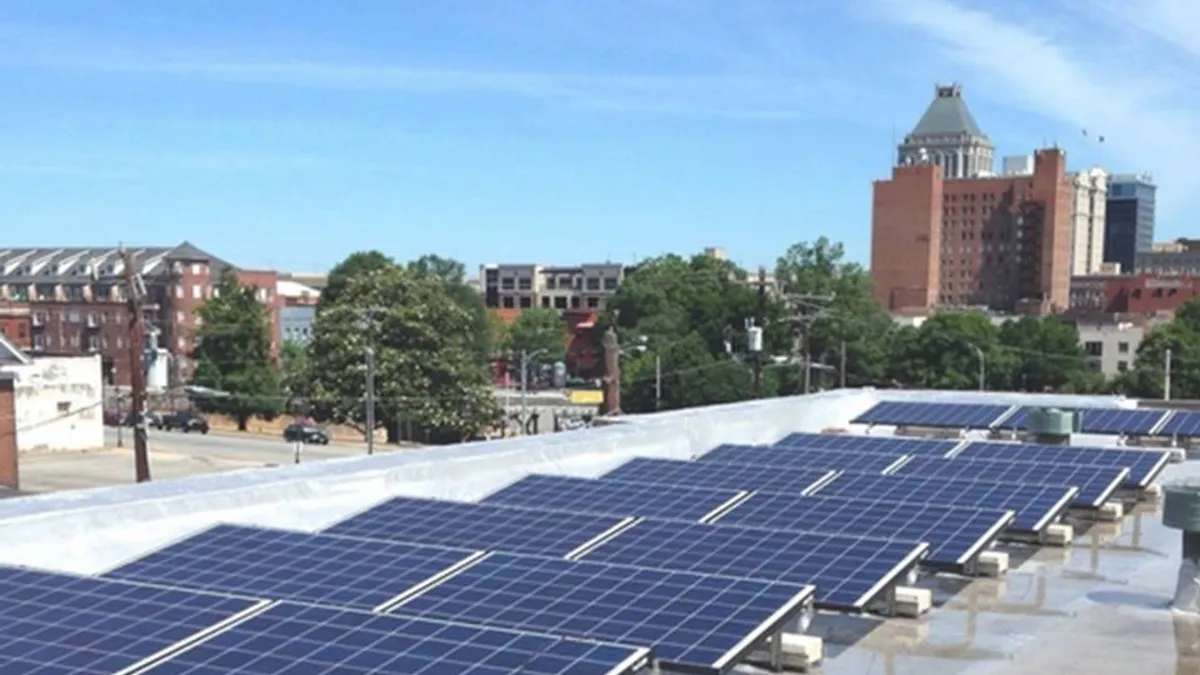Dive Brief:
- The North Carolina Utilities Commission (NCUC) has rejected a test case for third-party ownership (TPO) of rooftop solar in the state, throwing out a TPO agreement between advocacy group NC WARN and the Faith Community Church in Greensboro, Greentech Media reports.
- Under the agreement, the church paid for solar-generated electricity from an array on its roof owned by NC WARN, despite the fact that North Carolina law stipulates that electricity sales must come from a utility. While NC WARN argued it was providing a public service with the TPO arrangement, the NCUC fined the advocacy group $60,000 for illegally acting as an electricity provider.
- Duke Energy, the state's dominant utility, has long criticised the TPO arrangement, arguing that the state's Public Utilities Act limits electricity sales to utilities authorized by the commission.
Dive Insight:
Though NC WARN's TPO solar system was, at its core, an act of civil disobedience against the Public Utilities Act, officials from the advocacy group told Utility Dive last year they thought they also had a case to make to the NCUC.
"We have maintained we are not a public utility but providing a service — financing — on the church’s side of the meter," attorney John Runkle said in November.
The three-year power purchase agreement (PPA) covers the cost of a 5.25 kW solar installation on the church’s roof. The NCUC did not accept the organization's argument, deciding that it was illegally acting as a public utility and fining the group $60,000, though the fine can be removed if the agreement is terminated.
NC WARN will appeal the commission’s ruling through the courts, organization leaders said in a statement. TPO for rooftop solar has elsewhere been found to be “permissible and in the public interest,” the group said.
Duke Energy, on the other hand, welcomed a decision that sees it perserve its role as the monopoly provider of electricity in its service areas.
“It was clear NC WARN was acting like a public utility while ignoring all the rules,” Spokesperson Randy Wheeless said in a statement. The utility’s filing with the commission argued only the state legislature or the state Supreme Court, and not utility regulators, have the authority to allow TPO arrangements such as the PPA NC WARN provided to the church.
An increasing number of solar buyers are taking advantage of low interest rates and low installed costs to own their own solar arrays, but TPO is still expected to comprise more than half the residential solar market in the U.S. in the years to come.














